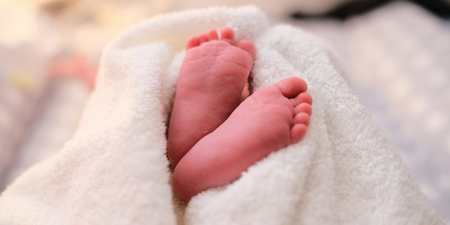The eighth amendment affects many aspects of Irish society.
From healthcare to human rights, the law prohibits women in Ireland from making decisions about their own bodies, futures, and lives.
Repealing the 8th means a change for many aspects of society in Ireland. This is one of them.
You can follow the rest of this series here.
Repealing the eighth amendment means making motherhood a choice.
In Ireland, at the time of writing, deciding whether or not to become a mother is not a legal option for women in Ireland.
If a woman becomes pregnant in Ireland and she does not want to be, she has a few options – none of which are to legally end her pregnancy (unless there is a real and substantial risk to her life).
The first is to travel to England, Wales, or another country where abortion without specific indication is legal.
There, she can avail of that country’s abortion services, terminate her pregnancy, and return home.
The second option is to order illegal abortion pills online and hope that they can be delivered to Ireland undetected.
These pills are listed as a necessity on the World Health’s Organisation’s (WHO) website, however there are risks associated with taking them illegally when they have not been prescribed by a doctor.

There are also risks associated with taking these pills alone, without means to travel to a hospital if necessary, and if a pregnancy has passed a certain date.
The third option is to continue with the unwanted pregnancy and become a mother.
If an unwanted pregnancy is forced to continue but a woman decides she cannot be a mother, her other option is to put the child up for adoption.
However, this decision would not erase the physical and emotional strain that comes with carrying a pregnancy to term.
Not only does the experience lead to a lot of physical changes in the body of the woman, but it can also lead to psychological changes if the pregnancy is unwanted.
According to a 2011 study commissioned and published by the Academy of Medical Royal Colleges, experiencing an unwanted pregnancy doubles a woman’s chance of having mental health issues.

The research included data from hundreds of thousands of women and found that the chances of depression and anxiety are likely to increase in women during an unwanted pregnancy.
At this time, it was estimated that approximately 12 percent of the female public suffered from mental health issues. This increased to about one third when an unwanted pregnancy occurred.
The study also found that having an abortion does not increase the risk of mental health related problems developing.
More research from the following year showed that unwanted pregnancy was the most common factor linked to depression during pregnancy.
This was the same with postpartum depression (PPD) too.
This report considered multiple studies from across the globe and discovered that women who have an unwanted pregnancy are twice as likely to develop depression-related symptoms during and after their pregnancies.

For example, a 2011 study in Australia showed that more women suffering from PPD had had unwanted pregnancies.
Similarly, a Chinese study from 2007 detailed that there was a 40 percent greater incidence of high levels of psychological stress in women with unwanted pregnancies.
Repealing the eighth amendment means giving women in Ireland the option to become a mother if that is what she wants.
It means giving all people the decision to be a parent, irrespective of their financial position, political status, or gender.
Repealing the eighth will give us a choice.




















































